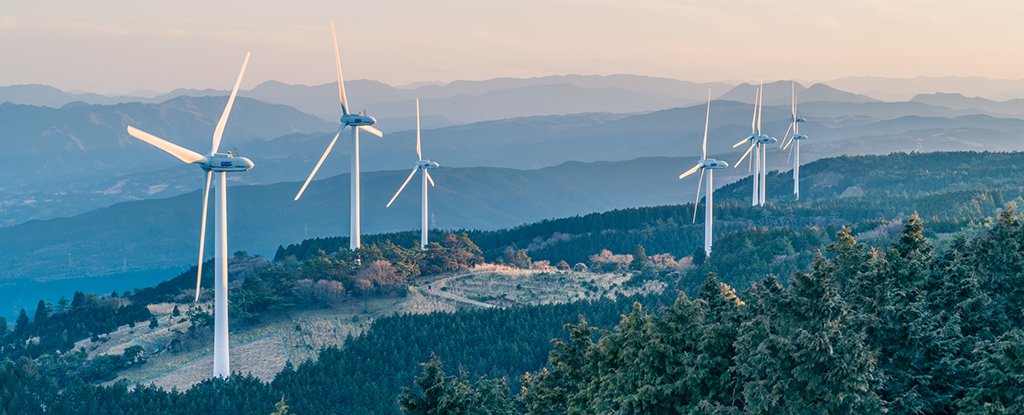Products You May Like
In order to mitigate the global impacts of climate change, we need to dramatically reduce our carbon emissions, or even better – stop emitting completely. Many countries have recognized the need to switch from fossil fuels to renewable or ‘green’ energy in order to do this.
Whilst most of us are in homes that are powered from a mixture of sources from coal to wind, is it feasible that one day everything will be solely from renewable energy sources?
We asked 22 experts in renewable energy, engineering, and energy systems ‘Is having 100 percent renewable energy for a country feasible?’. 15 answered likely, here is what we found out.
What is renewable energy?
Renewable energy is energy that comes from sources that are quickly replenished. This excludes fossil fuels such as oil and coal because they take millions of years to be made. It also excludes nuclear power as this uses uranium, which is non-renewable.
The types of power sources that are left are: geothermal, solar, hydro, wind, tidal, and biomass. Most of these types of power rely on the energy of the sun, whilst tidal relies on the gravitational force of the moon. These types of energy sources are considered ‘renewable’ as they will not run out in the near future.
Professor XiaoYu Wu, an expert in energy systems from MIT, says, ”The Earth receives 23,000 TW of solar energy, while the global energy consumption is 16 TW. Therefore, [100 percent renewable energy] could be possible even if we capture only 0.07 percent of the solar energy.”
How do we know whether 100 percent renewable energy is feasible?
In 2017, Mark Jacobson and colleagues from Stanford University published a scientific paper outlining a roadmap for 139 countries to transition to 100 percent renewable energy.
Professor Jacobson, an expert in renewable energy and climatology, describes how this paper, along with many other studies, make up a “body of work, carried out by over 85 authors and 35 peer-reviewers, [which] is further supported by an additional 30 peer-reviewed studies that find it is possible to match demand with supply with 100 percent or near-100 percent renewable energy systems.”
Such studies are based on models which predict future scenarios and test different power systems to see if they are able to satisfy energy demands. As with any kind of modeling, it can be challenging to estimate all of the parameters correctly.
Dr Mark Delucchi, an expert in energy systems and economics from the University of California, Berkeley, highlights some of these complexities. “The question of feasibility boils down to a few basic kinds of issues: how we model demand-side behavior in the face of radically different energy systems; how we quantify the costs and performance of existing or near-future energy technologies; and how we handle impacts that are not easily quantified in dollars (e.g., risks of nuclear power).”
Due to how difficult it is to predict what power systems will be feasible in the future, there is debate amongst scientists as to whether or not some fossil fuels may need to be used in addition to renewables.
What are the challenges with 100 percent renewable energy?
Professor Wu highlights some examples of regions which have run on 100 percent renewable energy, “Two years ago, there was news about Austria’s largest state used 100 percent renewable electricity. Also, for a certain day in some other countries in Europe, the renewable energy produced more than needed for the nation.” However, some people are concerned about whether we can rely on renewable energy for our constant demand.
Dr Eugene Preston, an expert in renewable energy from the Institute of Electrical and Electronics Engineers in the US, says ”Every once in a while, you see energy shortages in renewables production. This is because the wind and solar just have low production days in energy…If you miss a day of production in renewables you have to fire up the gas generators to fill in the demand.”
This issue would need to be addressed by energy storage solutions.
There are also non-technical obstacles to 100 percent renewable energy.
Professor Laurence Delina, an expert in renewable energy from Boston University, says ”Feasible in terms of what? If it’s feasibility in terms of technology, it seems likely – following arguments from Stanford’s Jacobson, Delucci, et al. If it’s feasibility in terms of the necessary policy, financing, and institutional drivers, it is less likely, unless current political, economic, and institutional/governance systems are adequately perturbed.”
Takeaway
Despite some debate, most experts agreed that 100 percent renewable energy was feasible. All experts agreed that a big shift away from fossil fuels is not only feasible but also essential to slow the effects of climate change.
Article based on 22 experts answers from this question: Is having 100 percent renewable energy for a country feasible?
This expert response was published in partnership with independent fact-checking platform Metafact.io. Subscribe to their weekly newsletter here.
